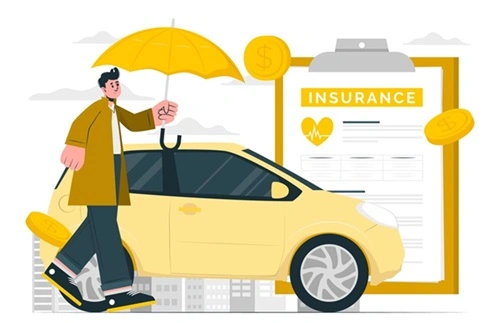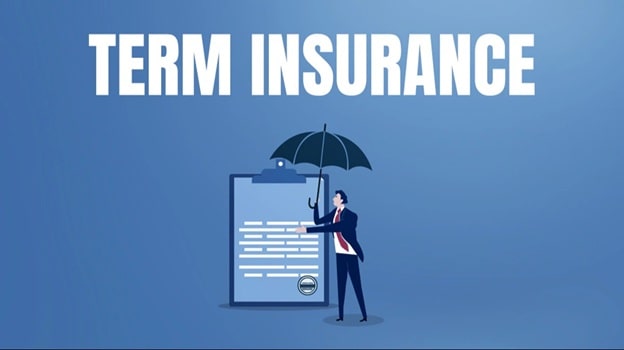Third-party car insurance is the most basic and legally mandated form of motor insurance. It covers the legal and financial liability arising from damage or injury caused by your vehicle to a third party. This can include harm to other people, their property, or their vehicle. The insurance does not provide any protection for your own car or personal injuries sustained in the incident. It is designed to safeguard you from the often substantial costs of accidents where others are affected. In essence, this policy ensures that you are not personally liable to pay for another person’s losses caused by your vehicle, which can be especially helpful in complex legal situations.
Why Third-Party Car Insurance Is Important

Accidents are unpredictable. Even a minor collision can result in expensive medical bills or property repairs for another person. In such cases, third-party insurance helps by covering the damages you are legally obligated to pay. This insurance is not only a safeguard against financial setbacks but also a requirement under national road safety laws. Without it, vehicle owners may face legal consequences including fines and penalties. The coverage extends to pedestrians, other vehicles, and public or private property. Although it excludes damage to the policyholder’s own car, it remains a crucial form of protection, especially for those looking to comply with legal norms while maintaining basic financial security on the road.
Legal Requirement in India
The Motor Vehicles Act mandates that every registered vehicle must carry at least third-party insurance coverage. Driving without it is illegal and can result in fines, legal trouble, or even vehicle seizure. The regulation aims to protect victims of road accidents by ensuring that drivers are financially capable of compensating for injuries or damages caused. The law prioritizes public safety and financial responsibility, and car insurance renewal serves as a mechanism to reduce disputes and facilitate compensation. Penalties for not holding valid coverage can vary but often include a fine of ₹2,000 or more for first-time offenders, with higher penalties for repeated violations.
What’s Covered Under Third-Party Insurance
This type of insurance covers bodily injury or death caused to another person due to an accident involving your vehicle. It also covers damage to third-party property, which could be another car, a boundary wall, a shop front, or other types of structures. In addition, most policies now include a mandatory personal accident cover for the owner-driver. This provides financial compensation in case of permanent disability or death during an accident involving the insured vehicle. While the scope of coverage is limited, it focuses on compensating others who suffer due to the insured person’s driving. The protection is vital for preventing legal complications and handling third-party claims smoothly.
What’s Not Covered
Third-party car insurance does not cover any damage to the insured’s own vehicle. If your car is damaged due to an accident, fire, theft, or natural calamities like floods or earthquakes, these costs must be borne out of pocket unless you have a comprehensive policy. It also does not include coverage for personal injuries to the owner-driver beyond the basic accident cover. Non-accident-related events such as wear and tear, mechanical breakdowns, or damage caused while driving under the influence are excluded as well. These limitations are important to understand when deciding whether third-party coverage is enough for your needs or if you should consider a broader policy.
Key Benefits of Choosing Third-Party Insurance
The primary advantage is affordability. Since it offers limited coverage, the premium is lower compared to other types of insurance. This makes it a practical choice for those driving older vehicles, using their car infrequently, or seeking to meet just the minimum legal requirement. The policy also simplifies the insurance process, with fewer variables to consider, making it easier to buy and renew. Additionally, it brings peace of mind knowing that even in the event of an unfortunate incident, legal liabilities will be handled. This can be particularly valuable in densely populated or high-traffic areas where the risk of accidents is higher.
Who Should Opt for Third-Party Insurance
If you are a low-mileage driver, own a vehicle with minimal market value, or simply want to meet the legal criteria without spending on extended protection, 3rd party car insurance may be the right fit. It is also suitable for those who park in secure locations, live in small towns, or use their vehicle occasionally. People looking to minimize their insurance expenses often prefer this policy as a starting point. However, for frequent drivers, new car owners, or individuals looking for complete peace of mind, this coverage may fall short and an upgrade to comprehensive insurance should be considered.
Third-Party vs Comprehensive Insurance
The major difference between these two lies in the scope of protection. Third-party insurance focuses solely on covering damages and injuries caused to others. It excludes your own car’s damage or personal injuries. Comprehensive insurance, on the other hand, offers a more well-rounded safety net. It includes own-damage cover, theft, fire, natural disasters, and access to optional add-ons such as engine protection or zero depreciation. While comprehensive plans have higher premiums, they provide greater value in the long run by reducing out-of-pocket expenses in more complex scenarios. Choosing between the two depends on your vehicle’s usage, value, and the level of risk you’re willing to manage independently.
The Process of Car Insurance Renewal
Renewing your insurance on time is critical to maintaining legal compliance and uninterrupted protection. Most policies last for one year, after which they must be renewed to remain valid. Many insurers send reminders via email or SMS, and digital renewal platforms make the process fast and hassle-free. Delaying the renewal can result in a lapse in coverage, meaning you’ll be unprotected during that period and may face fines if caught. In some cases, delays in renewal can also lead to the loss of accumulated benefits, such as a no-claim bonus. It’s advisable to set reminders or use auto-renewal features to avoid disruptions.
Common Mistakes to Avoid During Renewal
One common oversight is assuming that a basic third-party policy is sufficient, even when driving patterns or vehicle value have changed. Renewal is a good time to reassess whether your coverage still fits your needs. Another frequent mistake is not updating policy details such as address or contact information, which could delay communications or claim settlements. Some vehicle owners also skip reading the fine print, missing updates in policy terms. Finally, waiting until the last minute to renew can result in rushed decisions or missing the deadline entirely. Being proactive during the renewal window helps you maintain continuity and allows time for comparison.
Final Thoughts
Third-party car insurance plays a crucial role in responsible vehicle ownership. It ensures compliance with legal requirements and shields you from the financial consequences of harming another person or their property. While it may not offer complete coverage for your own vehicle, it serves its core purpose well—keeping you legally and financially protected in essential situations. When combined with timely renewal and a clear understanding of the policy scope, it forms the foundation of any motor insurance plan. Whether you’re buying a new policy or renewing an existing one, making informed choices based on your driving habits and needs is essential to maintaining financial security on the road.

